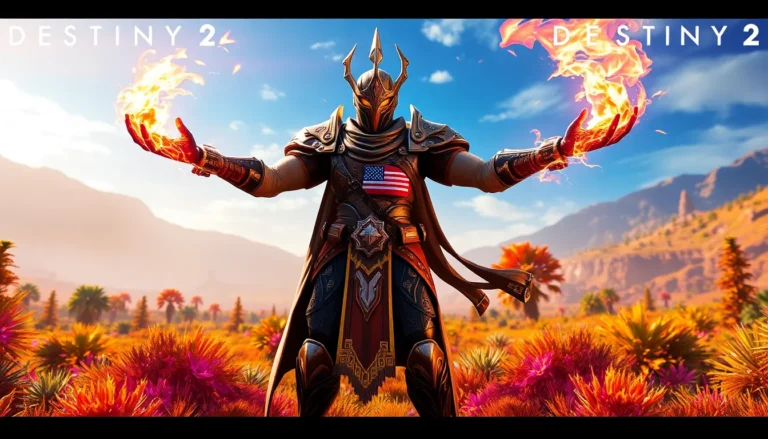Table of Contents
ToggleAs the seasons change, so do the currencies that fuel the excitement of seasonal events. From pumpkin-spiced lattes to festive holiday cheer, these unique currencies offer more than just a way to trade; they create a sense of community and celebration. Imagine collecting shiny tokens or special coins that unlock exclusive items or experiences—who wouldn’t want to be the proud owner of a virtual snowman or a limited-edition summer hat?
Overview of Seasonal Event Currencies
Seasonal event currencies serve as unique tokens that enhance festive experiences. These currencies provide players with an engaging way to participate in celebrations. During events like Halloween or Christmas, collection of special items becomes a focal point. Players often gather these currencies to exchange them for exclusive rewards.
Specific examples include limited-edition items, such as holiday-themed costumes or special in-game decorations. Collecting these currencies often leads to heightened excitement within the community. Players form strategies to maximize their collection efforts, fostering collaboration and competition among participants.
Different games showcase diverse types of seasonal currencies. Some titles feature a variety of currencies that correspond to specific events. For instance, a winter festival might offer snowflakes as currency, while a summer celebration may introduce seashells. Each currency typically comes with a specific purpose, ensuring a seamless gameplay experience.
Tracking the availability and use of these currencies applies greatly to event planning. Game developers often design events around the flow of these currencies to keep players engaged. Incentives encourage participation, making players feel valued within the game ecosystem.
Seasonal currencies also reflect a game’s overall theme and atmosphere. Visual design often complements the event’s aesthetic, creating a cohesive experience. As collectors engage with these currencies, a sense of community blossoms, enriching the overall celebration. Players’ interactions and shared experiences enhance their enjoyment and connection to the game.
Importance of Seasonal Event Currencies

Seasonal event currencies play a crucial role in enhancing player engagement and fostering community spirit during special occasions.
Economic Impact
Seasonal event currencies drive economic activity within games. They create a unique market environment where players can earn and trade specific currencies for exclusive items. This dynamic incentivizes participation, as players are more likely to engage with limited-time offerings. Game developers benefit from this model, as increased player activity often translates to higher revenue through in-game purchases. For example, during holiday seasons, special currencies may lead to significant revenue spikes, demonstrating the effectiveness of these currencies in boosting the game’s economy. Clear economic advantages motivate developers to implement seasonal events regularly, keeping the player base lively and engaged.
Social Engagement
Social engagement thrives through seasonal event currencies. They encourage collaboration and interaction among players, as everyone seeks rewards through shared efforts. During events like Halloween or Christmas, players often come together to strategize on collecting currencies. This collaboration builds stronger community ties and encourages socialization both inside and outside the game. Additionally, players might share their achievements on social media, amplifying the event’s reach and community pride. The visual appeal of these currencies often attracts attention, enhancing the festive atmosphere and encouraging players to participate actively in events. Overall, these currencies significantly contribute to the sense of belonging and excitement within the gaming community.
Types of Seasonal Event Currencies
Seasonal event currencies vary widely, playing a crucial role in engaging players during festivities. Each type reflects the spirit of the event, providing unique opportunities to collect and trade.
Local Festivals
Local festivals often celebrate specific cultural heritage or community traditions. Currencies from these events can include tokens or coins specific to the festival theme. For instance, a spring carnival might feature colorful flower tokens that players can use to unlock special rewards. Players engage by participating in local challenges, fostering a sense of community while enjoying shared experiences. Increased player interaction often leads to a vibrant in-game economy, where these unique currencies promote collaboration and excitement.
National Holidays
National holidays present opportunities for broader themes and gameplay elements. Currencies tied to these events can range from festive coins to event-specific items, such as fireworks or holiday-themed decorations. During Independence Day, coins shaped like stars or flags may be collected for special rewards. Players create a strong sense of nationalism and pride, especially in games that utilize visuals representing their country. The excitement generated from these events often fuels player participation and intensifies community interactions.
Cultural Events
Cultural events celebrate diverse traditions from around the world, enriching player experiences. Currencies tied to these events might include tokens reflective of historical significance or symbolic items. For example, a Lunar New Year event may introduce red envelopes filled with coins symbolizing prosperity. These currencies encourage players to engage in activities that honor and explore cultural backgrounds, creating an inclusive atmosphere. Such an approach often strengthens bonds among players, as they share their cultural heritage and collaborate for exclusive rewards.
Implementation Strategies
Implementation of seasonal event currencies requires careful consideration and strategy. Developers must create currencies that resonate with players while enhancing the gaming experience.
Planning and Development
Effective planning and development set the foundation for successful seasonal event currencies. Game designers analyze past events to understand player preferences. They prioritize creating currencies that align with seasonal themes, ensuring that they feel meaningful and engaging. Developers often brainstorm unique designs that reflect the spirit of each event, fostering excitement and anticipation. A diverse range of exclusive rewards based on these currencies helps maintain player interest and encourages participation during the festivities.
Marketing and Promotion
Marketing seasonal currencies plays a crucial role in their success. Game studios leverage social media channels to tease upcoming events and highlight currency-related rewards. Engaging visuals attract player attention and create buzz around the event. Promotional campaigns often include limited-time offers, spurring players to collect currencies quickly. Collaborations with influencers can further amplify reach, enhancing community excitement. Regular updates keep players informed about event progress and inspire them to participate actively.
Challenges and Considerations
Seasonal event currencies come with unique challenges that developers and players must navigate for a rewarding experience.
Sustainability Issues
Sustainability concerns arise when creating seasonal currencies. Developers need to ensure that these currencies do not promote excessive spending. Players often face the pressure to collect as many tokens as possible, leading to potential burnout. Game designers should implement balanced systems that encourage participation without causing financial strain. Environmental impacts of digital currencies also merit consideration, especially as gaming expands. Fostering a culture of sustainable gaming involves integrating eco-friendly practices that resonate with players.
Community Involvement
Community involvement plays a crucial role in the success of seasonal event currencies. Engaging players in the design process enhances their connection to the event. Feedback during and after events allows developers to understand player preferences. This collaboration promotes a sense of ownership among players. Social media platforms serve as channels for discussion, allowing communities to share their experiences and strategies. Creating opportunities for players to influence future events strengthens bonds among them and enhances the overall festive atmosphere.
Seasonal event currencies are more than just tokens; they’re a vital part of the gaming experience that fosters community spirit and engagement. By encouraging collaboration and participation during festive occasions, these currencies create a unique market that benefits both players and developers.
As game designers continue to innovate and adapt these currencies to reflect various cultural and local events, they enhance the overall enjoyment and inclusivity within the gaming community. The thoughtful implementation of these currencies not only drives economic activity but also strengthens bonds among players, ensuring that seasonal celebrations remain memorable and impactful.








